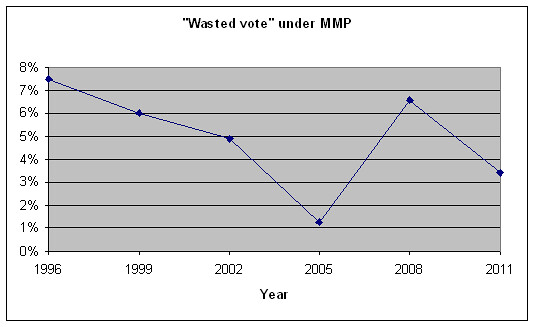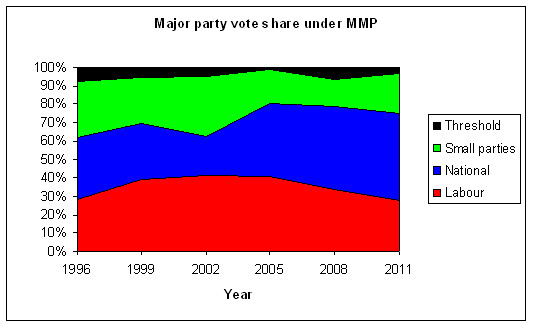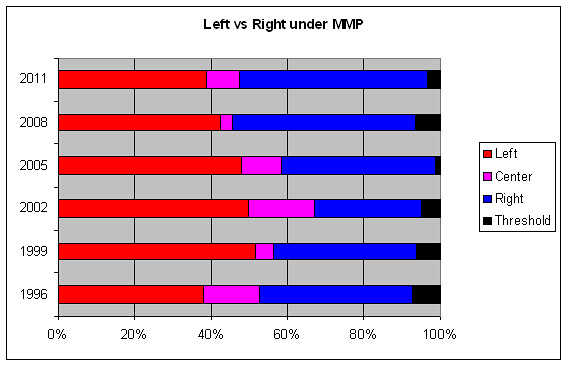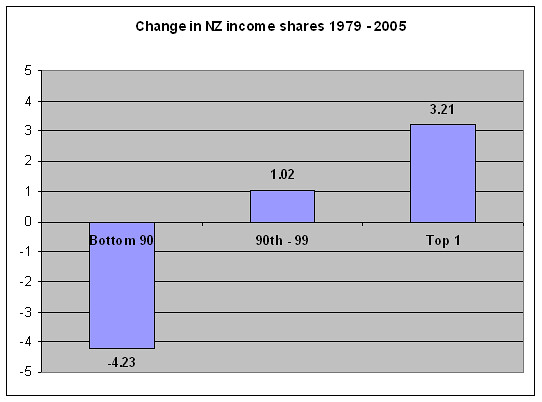So, the election is over, the votes have been counted (bar the specials), and John Key is still Prime Minister. He didn't get the outright majority all the polls were predicting, but will have no real trouble with confidence and supply, and with multiple majorities available should be able to pass whatever he wants. Hopes of saddling National with an uncooperative coalition partner (or the not always slavishly obedient Maori Party) have been dashed.
While National will probably lose a seat on the specials, that basic situation is unlikely to change. Yes, they'll need either the Maori Party or ACT plus United Future, but it isn't that hard to get the latter two to agree on economic issues (Dunne was after all first elected as part of the Fourth Labour Government, and has never repudiated its NeoLiberalism).
The Greens did well. MMP did well. Given its demographics, the advance vote was likely to favour change. The fact that it came out for retaining MMP means we should have the referendum in the bag. And what does it say when blank ballots beat all of the alternatives? There was never any grassroots push for change, and hopefully the right will now accept that and move on (winning a second election under MMP should help with that).
As for Labour, two months of solid left-wing policy couldn't make up for three years of doing nothing in opposition. And thanks to a list focused on protecting long-serving incumbent hacks, they've thrown the future of the party overboard, sacrificing people like Carmel Sepuloni, Stuart Nash and Brendan Burns in order to retain such stellar performers as Sue Moroney, Maryan Street and Rajen Prasad. Heckuva job, guys. You've got no-one but yourselves to blame for this one. Not that that will stop you.
(Actually, its Labour's long-serving electorate MPs like Trevor Mallard, Annette King and Ross Robertson who really need to move on. But that's not something the party list can really help with)
Finally, the graphs. First, the "wasted vote":

Disenfranchisement halved this election, from 137,500 to 68500. But that's still too many. We need to ditch the threshold. Fortunately, the MMP review will give us the opportunity to do just that.
Secondly, relative party vote shares for Labour, National and small parties:

Finally, left (Labour / Greens / Mana, and historically the Alliance and Progressives) vs right (National / ACT):

As can be seen, the tide is against the left at the moment, primarily because of the failure of the Labour Party. Assuming they get around 50,000 specials, they will have lost 200,000 votes since the last election. 50,000 of them have gone to the Greens, and 50,000 to NZFirst. As for the rest, they stayed home, unwilling to turn out for a Labour Party so uninspiring. Labour will blame them, of course, and make a lot of noise about "apathy" and evil polls, but that's just excuse-making. If parties want our votes, the onus is on them to make us care enough to spend ten minutes to tick a box. Labour didn't do that. And their desire to blame us rather than accept responsibility for their own failure is a big part of the reason why.










